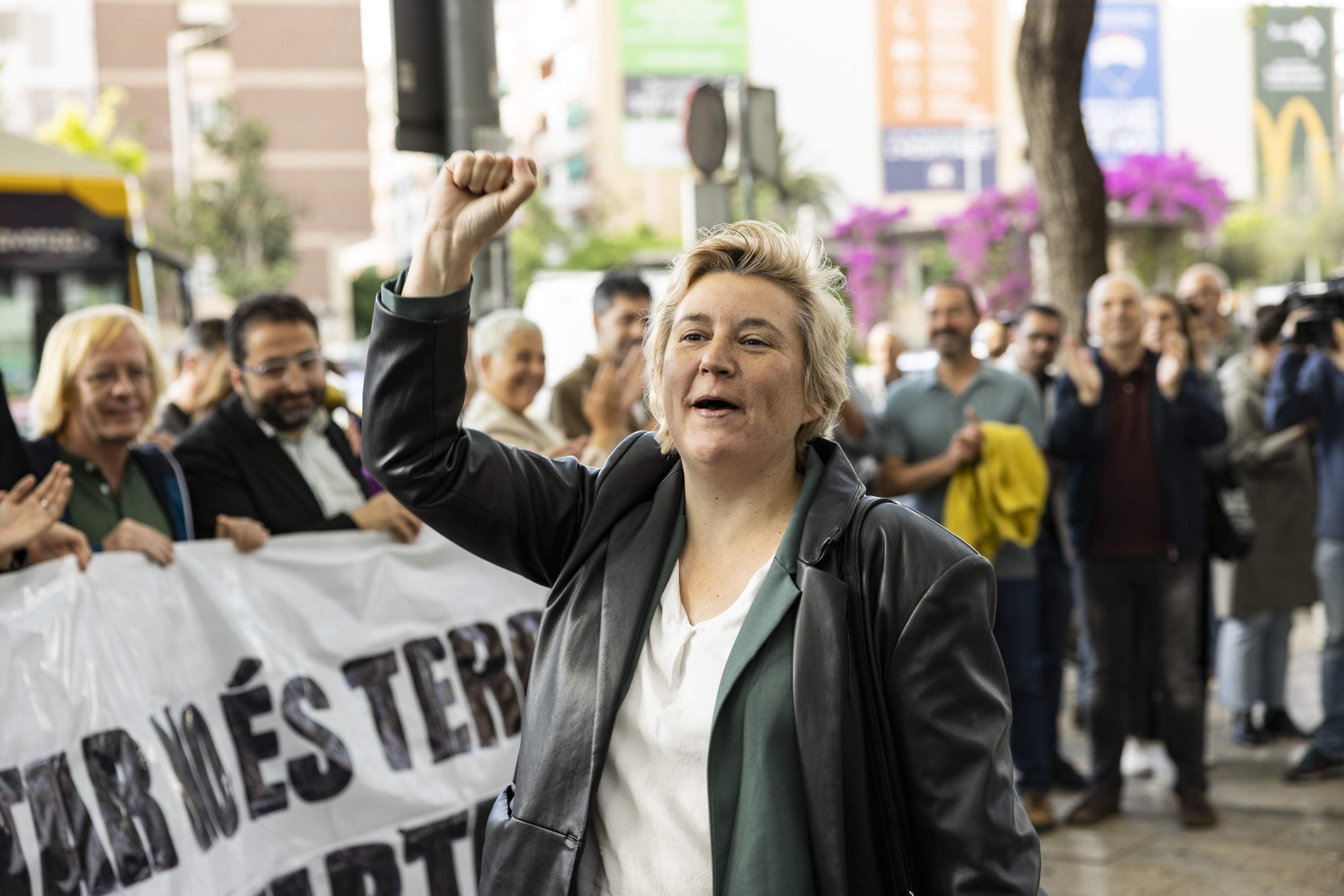Spanish judge Manuel García-Castellón has imposed no restrictions on the liberty of ERC politician Marta Molina, investigated for terrorism in the Democratic Tsunami case, after hearing her testimony by video conference from the Barcelona courts which he monitored from the central National Audience court in Madrid, this Wednesday. Molina, who only answered the questions asked by her lawyer, Marina Roig, denied that she made any call for violence, stating that she followed Tsunami's statements in the media, and did not see any call for violence there either. In addition, Molina reiterated the affirmation that "the Catalan independence movement is not violent". The Civil Guard maintains that Molina coordinated some mobilizations of the anonymous Tsunami Democràtic protest platform, such as the attempt to block accesses to Madrid-Barajas airport. The judge did not give a speaking turn to the various private prosecutions (one conducted by two police officers, and others by Spanish nationalist organizations Vox, Societat Civil Catalana and Dignidad y Justícia), which were not able to make a call for provisional prison, and he then ended the communication. No representative of the public prosecutors attended, although a member of the state solicitors' office was present. The appearance lasted just five minutes.
Marta Molina was accompanied to the court room doors by political representatives, in an act of pro-independence unity. Again, leaders of the Catalan Republican Left (ERC), Together for Catalonia (Junts) and the far-left CUP, in addition to the president of the Òmnium Cultural civil group, reiterated their assertion that the Tsunami case is political and has been pushed forward as a way of undermining the amnesty law, which is to be definitely passed next week in Spain's lower house, and should lead to the closure of this case and of all those affecting Catalan independence activists.
What about the others investigated?
In addition to Molina, the National Audience judge had also summoned seven of the ten people investigated in the Tsunami case to testify today, despite the fact that their lawyers had asked to do so from Switzerland or Colombia. It remains to be seen whether the prosecution will request international arrest warrants for those under investigation and whether judge García-Castellón agrees. They are former Catalan minister Xavier Vendrell, who is in Colombia, where he works; journalist Jesús Rodríguez, who left for Switzerland last November after being accused of terrorism; Oleguer Serra, a director of Òmnium, whose president Xavier Antich defended the decision; and the activist Josep Campmajó.
The judge approved the postponement of the declarations by the ERC general secretary, Marta Rovira; by the office head of president Puigdemont, Josep Lluís Alay, and businessperson Oriol Soler. In addition, computer scientist Jaume Cabaní and the Italian citizen Flavio Giulio Foglia are, for now, at unknown addresses. The judge asked the Italian authorities to find out where the latter lives.
Statements to the Supreme Court
At the same time, the Supreme Court judge investigating the Tsunami case, Susana Polo, has allowed the president-in-exile, Carles Puigdemont, and ERC deputy Rubén Wagensberg, to testify from abroad during the week of June 17th. The amnesty law will already be in force, and if it has been published in the state gazette by then, the judge would be expected to close the case against both men.

